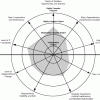Strategic advice to leverage new technologies
Technology is at the heart of nearly every enterprise, enabling new business models and strategies, and serving as the catalyst to industry convergence. Leveraging the right technology can improve business outcomes, providing intelligence and insights that help you make more informed and accurate decisions. From finding patterns in data through data science, to curating relevant insights with data analytics, to the predictive abilities and innumerable applications of AI, to solving challenging business problems with ML, NLP, and knowledge graphs, technology has brought decision-making to a more intelligent level. Keep pace with the technology trends, opportunities, applications, and real-world use cases that will move your organization closer to its transformation and business goals.
Recently Published
It's Time for More (and Better) Kanban
Why the current call for more Kanban -- and better Kanban? Recently, I thought about this question while perusing the work of Professor C.K. Prahalad and his colleagues. 1 Fusing their viewpoints with my own research on five current macrotrends highlights the need for more Kanban -- and the potential for better Kanban -- which IT should explore. Let me first explain the macrotrends driving my argument.
BI and Open Data in the Cloud
As I explore in this Executive Update, one of the most interesting and challenging scenarios ahead for BI comes from the predicted "shift to the cloud."1 According to
Pitfalls of Agile XIV: KanBut
SAP may have dished up a fastball high and inside, just under the chin. The target: its database competitors.
After spending time looking at the architecture for HANA, the new Intel-based BI appliance SAP has been working on, it is clear to me that this technology just might be very, very disruptive.
In other words, data is a collection of unorganized/uninterrupted facts. When we put those facts in the context of a schema or classification, then we have useful information. When we put that information into the context of experience, then we have knowledge. When we apply that knowledge to add value, then we have wisdom.
This week, I spoke with the folks from Composite Software about the latest version of the company's data virtualization1 platform, Composite Enterprise Information Server 6.0. Composite Software's latest version adds new source data integration capabilities to the mix of sources it can access and integrate.













